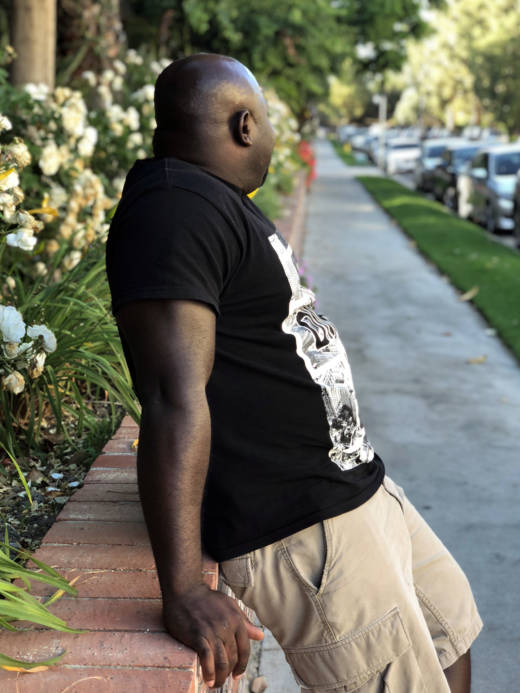“He started screaming, making noise, ‘You people! Why are you like this? Sseguya recalls.
While same-sex marriage is legal in California, 72 countries still criminalize people who are part of the LGBTQ community, according to a 2017 report by the International Lesbian, Gay, Bisexual, Trans and Intersex Association.
In Uganda, homosexuality is illegal and can lead to jail sentences, sometimes for life, for those found guilty.
Sseguya knew what could happen for loving someone of the same sex. Just a year earlier, in 2011, David Kato, a teacher and one of Uganda’s most outspoken LGBTQ rights activists had been hammered to death.
This same violent outrage met Sseguya when he was discovered by his neighbor.
“Because it was morning time, a lot of people came out of their homes. [They] were chanting, ‘Let us kill them, let us kill them!’” he recalls. “When we locked ourselves in the house, people wanted to burn down the house. They destroyed almost everything.”
The landlord begged protesters not to burn down the house, but to call the police instead. When the officers arrived, they arrested Sseguya and his partner and put them in a crowded jail cell.
The police then told the other inmates that the two men were gay.
“Immediately after closing, chaos erupted in the cell,” Sseguya remembers.
The inmates beat and threatened to kill both of them. When the officers came back a few minutes later, Sseguya was bleeding. This was the last time Sseguya saw his partner before they were separated.
Sseguya’s family never visited him in jail. “Most of them, they were happy that I [was] in jail, that’s why they didn’t come to see me,” he explains. “If you know somebody who is a gay and you don’t report, you are also taken as a criminal. Maybe that’s why they didn’t show up.”
After one month in jail, a colleague bailed him out. But Sseguya’s ordeal did not end there. He was required to report regularly to authorities. Additionally, he could not get his business license renewed because of his sexual orientation.
Eventually, life became so stressful for Sseguya that he decided to take a break and visit the U.S. It was there he learned that the Ugandan police issued a warrant for his arrest because he had failed to report to the authorities.
“My friend… he’s the one who told me, ‘You know what? Don’t come back,’” he recalls.
Fearing for his life, Sseguya decided to seek political asylum in California. But four years after his arrival in Los Angeles, he is still wary of revealing too much to strangers.
Even here in California, a state almost two times the size of Uganda, he has not escaped homophobia in the immigrant community.
“People they always want to know: ‘Why? Why? Why?’” he says. “At the end of the day, it’s none of their business. It’s your business.”
Persecution is not the only reason Sseguya is guarded. Not only did he lose his family, his partner, and his job, but here in Los Angeles, he is homeless.
“When I got here, I had some money,” he describes. “Then, the person I was living with kicked me out because I had no money.”
This explains why our interviews took place inside his friend’s battered old minivan. It took him a while to admit it, but this is where he lives.
To survive, Sseguya wakes up at the break of dawn every day, collects scrap, and backs up the van to the recycling bins at a swap meet in Van Nuys. He manages to scrape together around $300 each month.
Despite the circumstances, he does not complain. Instead, he is grateful to be alive.
“I wanted to live my life to the fullest, the way I wanted to be,” he said. “I chose what was best for me.”
While Sseguya now sets his sights on becoming a defense attorney to fight for people’s rights, he has a long journey ahead. First, he has to secure his political asylum by proving what happened to him in Uganda. In the meantime, he has to survive financially and try to get off the streets, in the hopes that one day he will be able to live openly as a gay man.
“Every day, I have hope,” he said. “As long as I’m still alive, I have hope that one day I can make it.”
Only then can he make his California dream a reality.
This story was produced in collaboration with an advanced reporting class at the USC Annenberg School for Communication and Journalism. Students spent a semester examining what the California Dream means to Angelenos from different walks of life.

